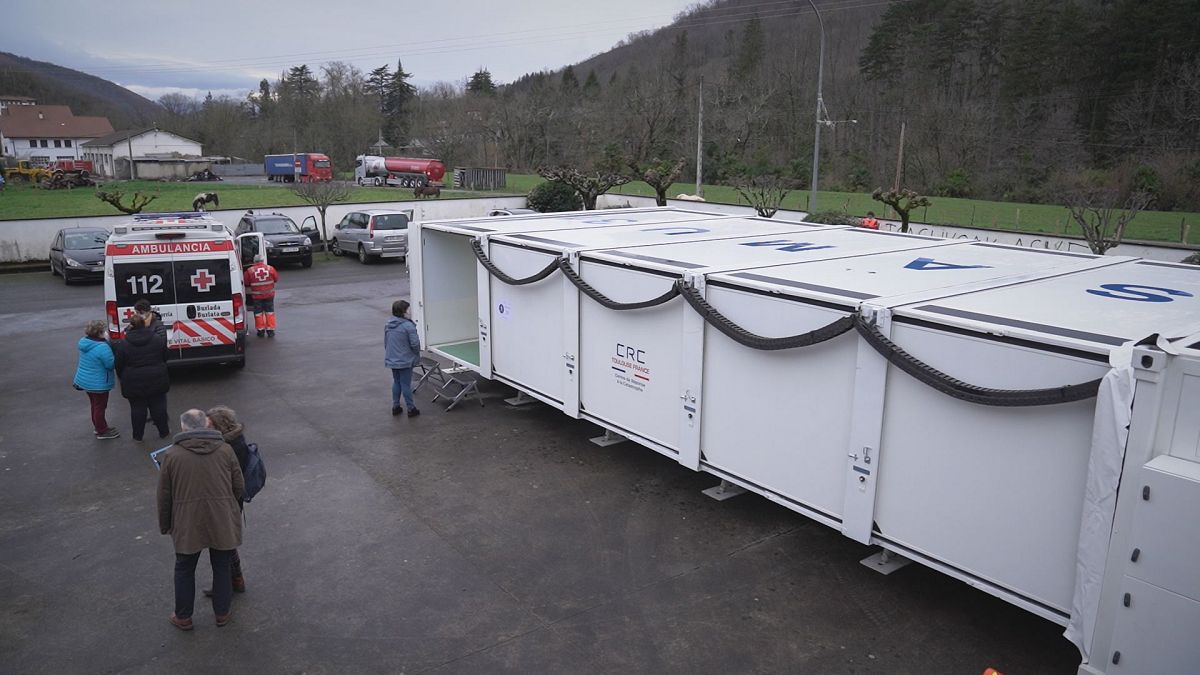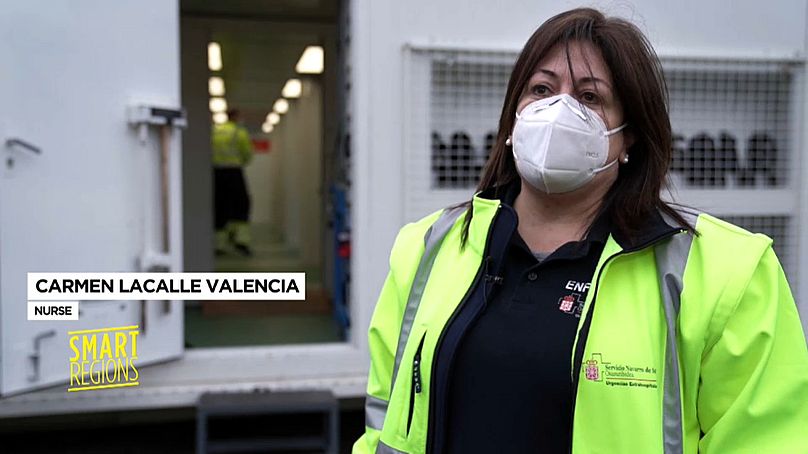The French and Spanish Pyrenees regions get help with medical emergencies from the European project EGALURG. Its self-reliant mobile hospital also brings COVID-19 vaccine relief to rural communities.
With only 500 inhabitants, the village of Oronoz-Mugaire in Navarre, Spain, is in a bucolic setting with vibrant traditions. Isolation is perhaps one of its only weak points. The nearest hospital, for example, is an hour away.
But in early February, a French lorry arrived there carrying Europe’s first-ever cross-border mobile hospital. It was deployed in 40 minutes. It is part of a European project called EGALURG, which provides isolated populations, on both sides of the Pyrenees, equal access to healthcare in the case of disasters or emergencies. It is even being used as a COVID-19 vaccination centre.
Carmen is a nurse and part of one of the three vaccination teams in Navarre. She tells us that she had never heard of anything quite like this and it makes her happy because as she says, "we are living in a historic moment". She also finds it very gratifying to come to villages to vaccinate the most vulnerable because she believes it's the beginning of the solution to the COVID-19 crisis. She's hopeful "we’ll be back to normal soon".
A European initiative
This European project has a total budget of more than 2.3 million euros, 1.5 million of which comes from the European cohesion policy. The mobile hospital’s most important feature is its versatility. It has been used in Bayonne and Haute Garonne to relieve hospitals and to carry out PCR tests.
Those in charge of operations in Navarre communicate via videoconference with the Toulouse Hospital that coordinates the project.
Iñaki is a doctor at the local health centre, the health staff there were recently on the vaccination list, as well as vulnerable people and their carers.
Iñaki tells us that people in Oronoz-Mugaire are relieved by the mobile hospital's arrival. He says that the locals "are hoping to get vaccinated, especially people highly dependent on others and those who take care of them. They’re the most anxious ones because they say to themselves: 'I might pass the virus on to my relative who depends on me, I might be asymptomatic, and that relative might depart from this world'".
Fully equipped
But for Diego, the head of emergency and medical transport, the mobile hospital is an opportunity. It is self-reliant in water and electricity but its advantages go beyond that. The lorry has all the necessary equipment: Respirators, monitors and ultra-sound equipment. He tells us that "it can be transformed into an ER with emergency stalls and its capacity can go up to 18, depending on the kind of disaster".
This mobile hospital shows how much can be achieved through co-operation and sharing as emergencies do not stop at borders.


